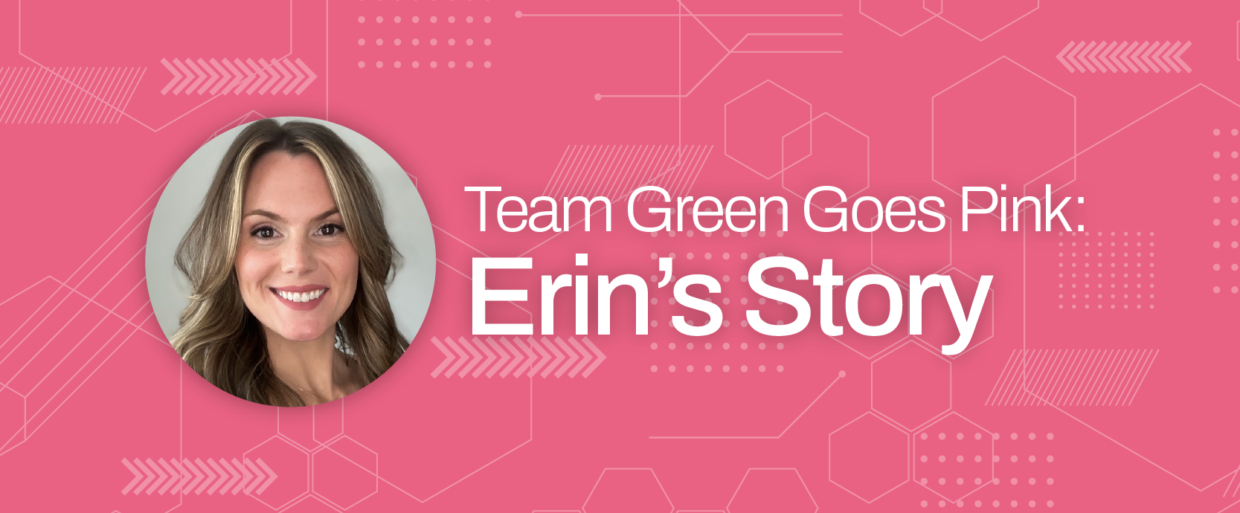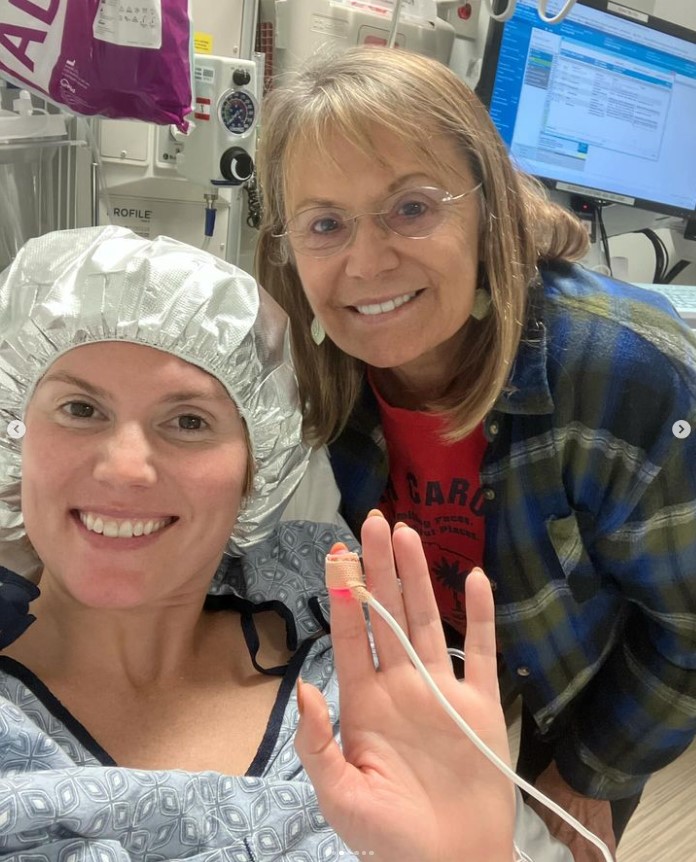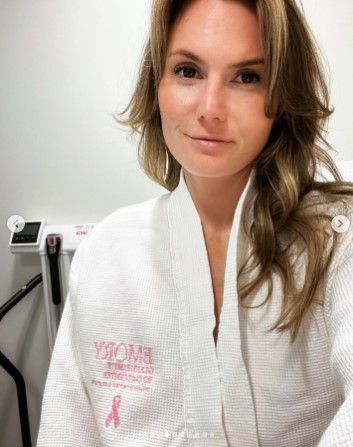
Breast Cancer Awareness & The Importance of Genetic Testing: An Anecdote from Erin Kadzis

As we recognize Breast Cancer Awareness Month, I can’t help but reflect on my personal journey and my family’s experience with breast cancer. Two weeks ago, I celebrated 10 months post-preventive double mastectomy following multiple breast cancer scares since 2017 and my first ovarian cancer scare in June 2023.
I owe much of my strength and resilience to my mother, a two-time breast cancer survivor, a one-time bladder cancer survivor, and a BRCA1 gene carrier. She has stood by me through every health challenge, and her unwavering perseverance has shaped me into the woman I am today. Witnessing her journey and the way our family fought alongside her for over 20 years taught me the power of support, knowledge, and advocacy.
Because of her influence and those who paved the path before me, I have the confidence to leverage science and knowledge in my pursuit of a longer, healthier, and hopefully cancer-free life.
How It All Began
About 13 years ago, I took a genetic test that changed my life. It revolved around cancer. But despite what they meant, the results vastly improved my outlook.
It was 2011. My mother had just been diagnosed with breast cancer for the second time. And her doctors suggested the characteristics in which the cancer returned looked consistent with something foreign to us back then. Something called the BRCA gene.
Doctors recommended that my mother take a genetic test to understand if their theory was correct. They also indicated it would be critical information to have for her recovery plan and potentially for her children’s future. My mom’s test came back positive for BRCA1 gene mutation. I took my test not long after. My results came back the same.
So what is the BRCA gene mutation? In summary, risks of developing breast and ovarian cancer are markedly increased in people who inherit the BRCA1 or BRCA2 gene.
BRCA 1 risks (what my family carries): 45–85% chance of developing breast cancer in their lifetime, compared to about 12% for the general population; 10–46% chance of developing ovarian cancer in their lifetime, compared to less than 1% for the general population. These risks increase with age, beginning in your mid-thirties to early forties.
A BRCA gene carrier has a 50% chance of passing the trait to their children. My mother has two kids – myself and my older brother (yes, men can carry it too!). My brother, a father of three, fortunately tested negative – meaning the gene stopped with him. His children are safe from an increased risk of breast and other cancers.
For about 11 years I opted for early and frequent surveillance. I had my first mammogram at 24 years old. In my mind, knowing I had this gene and the risk it imposed garnered a sense of power, not fear. I felt like I had the tools to take this head on.
Over time, we learned more about our family history of cancer. Other carriers of the BRCA gene in our extended family were diagnosed with breast cancer. Sometimes more than once like my mother. Others were diagnosed with ovarian cancer after their fight with breast cancer. What we noticed was a trend that said this: “in your family, specifically, those with the BRCA gene are extremely likely to have breast cancer, and have a high possibility to experience ovarian cancer as well.” Between the science and the family history, I felt like I had a clear understanding of what I was up against.
By my mid thirties in 2023, I’d experienced several breast cancer scares over a several-year span and one ovarian cancer scare. It was at this point I decided screenings and surveillance were no longer protecting me in an adequate way. Prevention became my best course of action.
Today: My Message for Breast Cancer Awareness & Genetic Testing
Jumping forward to 2023 and 2024, and even as recently as two weeks ago.
This month marked yet another significant step in my BRCA1 journey as I underwent a preventative salpingectomy in early October.
The main reason I share my story is to spread awareness about BRCA and the importance of genetic testing. I believe it’s crucial to dig into your family health history when possible, and advocate for yourself in the face of health concerns. Navigating our healthcare system can be incredibly challenging, especially when you’re up against a wall. Which is why I echo the theme of “knowledge is power”!

Knowledge is Power
When it comes to your health, knowledge truly is power. Here are a few key takeaways I’ve learned along the way:
Know Your Options: Understanding your choices can make all the difference.
Ask ALL the Questions: Never hesitate to seek clarity on anything that feels uncertain.
Get Second and Third Opinions: Your health journey is too important to settle for anything less than complete confidence in your care.
Connect with Support Groups: Look for data-driven, non-profit support networks that can provide resources and community.
If you or a loved one have questions about BRCA, breast cancer, genetic testing, or anything related, please know that I am here for you as a support outlet. Let’s continue to empower each other through awareness, education, and shared experiences. 💗
Supporting #TeamGreenGoesPink
We’re sharing stories like Erin’s to highlight the importance of awareness, early detection, and proactive steps in the fight against breast cancer. By promoting genetic testing, advocating for self-education, and providing support, we aim to empower women to make informed decisions about their health. Through our partnership with the National Breast Cancer Foundation and the #TeamGreenGoesPink campaign, we encourage you to join us in making a meaningful impact. Every voice and every donation can contribute to a future where breast cancer is met with the resources and support needed for prevention and survival. Together, we can turn knowledge into action and offer hope to women like Erin.
To learn more or donate to the fundraiser click here.